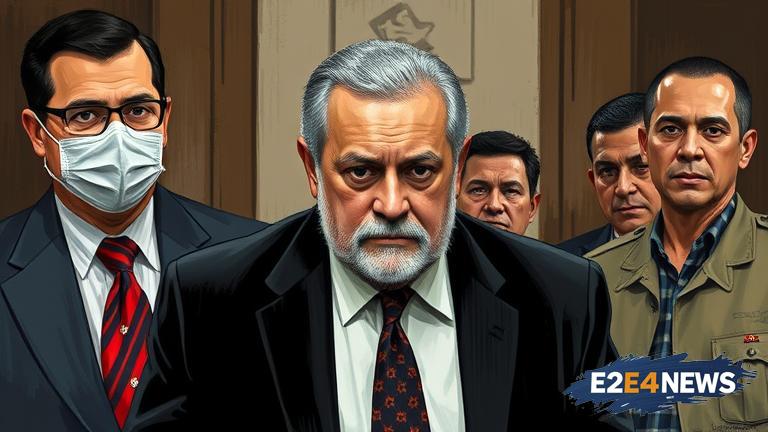In a shocking turn of events, Ismael ‘El Mayo’ Zambada, the elusive leader of the notorious Sinaloa Cartel, has pleaded guilty to various charges related to his involvement in the global narcotics trade. The 75-year-old Mexican drug lord, who had evaded capture for decades, has agreed to forfeit a staggering $15 billion in assets, marking one of the largest seizures in history. Zambada’s guilty plea brings an end to a long and complex investigation, which spanned multiple countries and involved the cooperation of several law enforcement agencies. The Sinaloa Cartel, once considered one of the most powerful and feared drug trafficking organizations in the world, has been significantly weakened in recent years due to the arrests and convictions of several high-ranking members. El Mayo Zambada’s plea agreement is seen as a major victory for the US Department of Justice and the Mexican government, which have been working tirelessly to dismantle the cartel’s operations. The case against Zambada was built on a mountain of evidence, including testimony from former associates and wiretaps, which revealed the inner workings of the cartel’s vast and intricate network. The Sinaloa Cartel’s reign of terror, which spanned over three decades, was marked by brutal violence, corruption, and exploitation, leaving countless victims in its wake. Zambada’s guilty plea is a testament to the dedication and perseverance of law enforcement officials, who have worked to bring the cartel’s leaders to justice. The conviction also serves as a warning to other drug traffickers, who may be considering following in Zambada’s footsteps. The $15 billion forfeiture is a significant blow to the cartel’s financial operations, which were used to fund its illicit activities and bribe officials. The seizure of assets is also expected to have a ripple effect, impacting the cartel’s ability to operate and undermining its influence. The case has sparked widespread interest and debate, with many experts weighing in on the implications of Zambada’s guilty plea. Some have praised the conviction as a major milestone in the war on drugs, while others have raised concerns about the potential consequences of the plea agreement. As the dust settles, one thing is clear: El Mayo Zambada’s guilty plea marks the beginning of the end for the Sinaloa Cartel, and serves as a powerful reminder of the consequences of engaging in organized crime. The conviction is also a testament to the power of international cooperation, which has been instrumental in bringing the cartel’s leaders to justice. The US and Mexico have long been partners in the fight against organized crime, and this case highlights the importance of continued collaboration. As the world watches, the fallout from Zambada’s guilty plea continues to unfold, with many wondering what the future holds for the Sinaloa Cartel and its remaining members. The case has also raised questions about the role of corruption and complicity in the cartel’s operations, with many calling for greater accountability and transparency. In the end, El Mayo Zambada’s guilty plea serves as a reminder that justice can be slow, but it is always inevitable. The conviction is a major victory for the rule of law, and a powerful warning to those who would seek to engage in organized crime. With the Sinaloa Cartel’s influence waning, many are hopeful that a new era of peace and stability may be on the horizon. However, the road ahead will undoubtedly be long and challenging, requiring continued cooperation and dedication from law enforcement officials and governments around the world.
